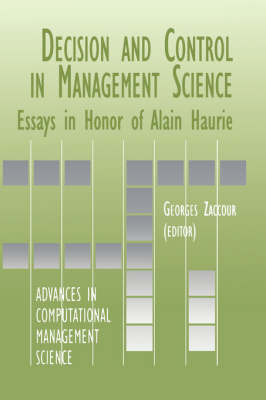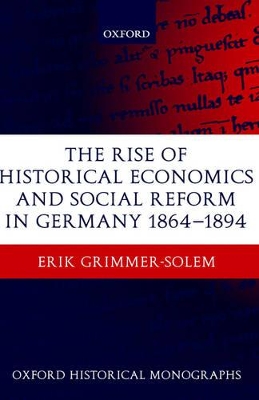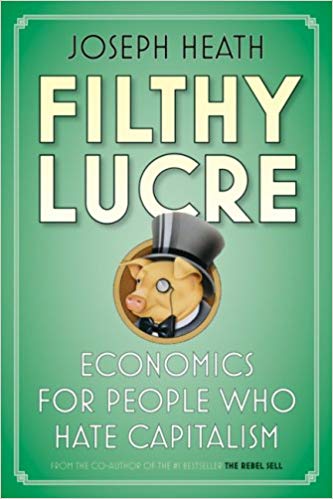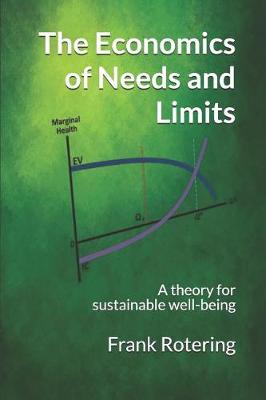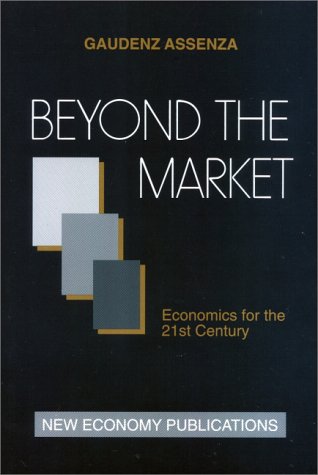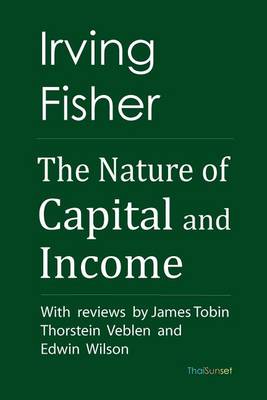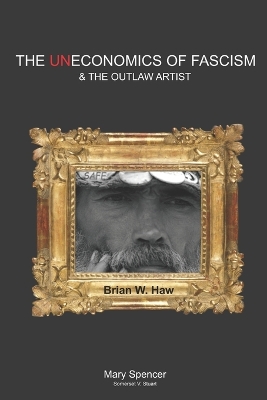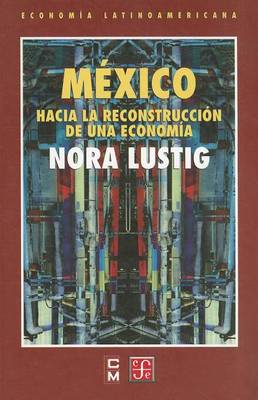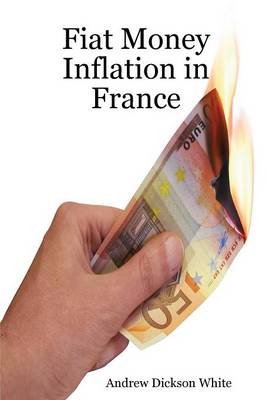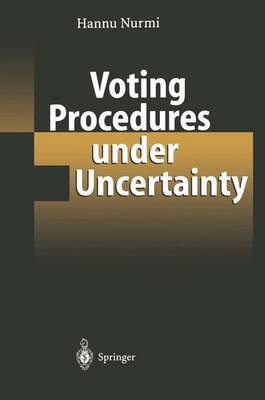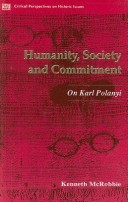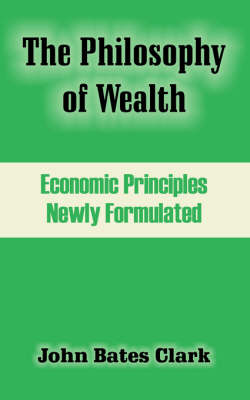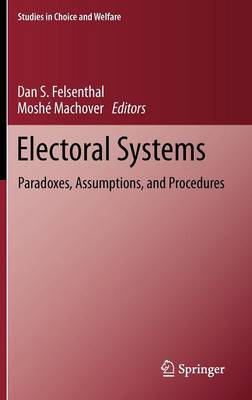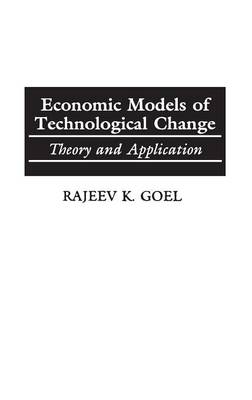First published in English in 1929, this is a reissue of Otto Rühle's comprehensive biography of Karl Marx. Written by a leading Marxist and key figure within the German Labour movement, this is an exceptionally detailed and well-researched study which sets Marx's life and work firmly within its social and historical context before examining in depth the major events of his life and the writings for which he has become such an influential figure in modern political philosophy. The final chapter...
Decision & Control in Management Science (Advances in Computational Management Science, #4)
Decision & Control in Management Science analyzes emerging decision problems in the management and engineering sciences. It is divided into five parts. The first part explores methodological issues involved in the optimization of deterministic and stochastic dynamical systems. The second part describes approaches to the model energy and environmental systems and draws policy implications related to the mitigation of pollutants. The third part applies quantitative techniques to problems...
The Rise of Historical Economics and Social Reform in Germany 1864-1894 (Oxford Historical Monographs)
by Erik Grimmer-Solem
Social science and social reform flourished in Imperial Germany, and the historical economist Gustav Schmoller made fundamental contributions to both. Despite this, historians have neglected him. Questioning the term 'German Historical School' associated with Schmoller, Grimmer-Solem reveals the European context of Schmoller's thought and the influence of empiricism, statistics, and advances in the natural sciences on his choice of methods. By exploring the social context in detail, he deomons...
Filthy Lucre: Economics for People Who Hate Capitalism
by Joseph Heath
Forests in a Market Economy (Forestry Sciences, #72)
This book draws together contributions from forest economists in the Research Triangle of North Carolina, with co-authors from institutions around the world. It represents our common belief that rigorous empirical analysis in an economic framework can inform forest policy. We intend the book as a guide to the empirical methods that we have found most useful for addressing both traditional and modem areas of concern in forest policy, including timber production and markets, multiple use forestry,...
Adam Smith's the Wealth of Nations (Infinite Success)
by Karen McCreadie
Published in 1776, Adam Smith's The Wealth of Nations was the first comprehensive treatment of political economy. Today it is considered one of the most influential books ever written and its author is regarded as the father of classical economics. Smith did for economics what Darwin did for science. Here Karen McCreadie interprets this inspiring book for the modern day world of finance, business and economics, illustrating the timeless nature of Smith's insights by bringing them to life with tw...
The Nature of Capital and Income
by James Tobin, Thorstein B Veblen, and Edwin B Wilson
Imperial Germany and the Industrial Revolution (Barnes & Noble Digital Library)
by Thorstein Veblen
The approach presented in this book combines two aspects of generalizations of the noncooperative game as developed by Nash. First, players choose their acts dependent on certain information variables, and second there are constraints on the sets of decisions for players. After the derivation of a general (Nash)equilibrium existence theorem, some results from purification theory are used to prove the existence of an approximate equilibrium in pure strategies, that is in nonrandomized decision fu...
Signaling Goodness (Economics, Cognition, and Society)
by Phillip J Nelson and Kenneth V Greene
Political, intellectual, and academic discourse in the United States has been awash in political correctness, which has itself been berated and defended -- yet little understood. As a corrective, Nelson and Greene look at a more general process: adopting political positions to enhance one's reputation for trustworthiness both to others and to oneself. Phillip Nelson and Kenneth Greene are Professors of Economics in the Department of Economics at the State University of New York, Binghamton.
We live in an uncertain world, is a truism most of us hear more often than we would like. What one usually means to say by this is that we do not know what will happen in the future. Since changes, even major ones, have occurred in the past, it is possible that they will occur again in the future. In politics institutions are ways of coping with continuity and change. In democratic systems the electoral institutions provide ways of peaceful adjustment to changes in popular opinions. This book is...
Humanity, Society and Commitment (Critical perspectives on historic issues, v. 4)
by Kenneth McRobbie
Electoral Systems (Studies in Choice and Welfare)
Both theoretical and empirical aspects of single- and multi-winner voting procedures are presented in this collection of papers. Starting from a discussion of the underlying principles of democratic representation, the volume includes a description of a great variety of voting procedures. It lists and illustrates their susceptibility to the main voting paradoxes, assesses (under various models of voters' preferences) the probability of paradoxical outcomes, and discusses the relevance of the the...
Scholars, students, policy makers and business practitioners will find the theoretical and empirical models provided by this book helpful in understanding the economics of technical change at both the micro and macro levels. The major focus is on the question of how economic models can be used to study firms' behavior in the innovation process. The book also stresses strategies that policy makers can use to bolster technical change, technology diffusion, and economic growth. Goel covers the m...

